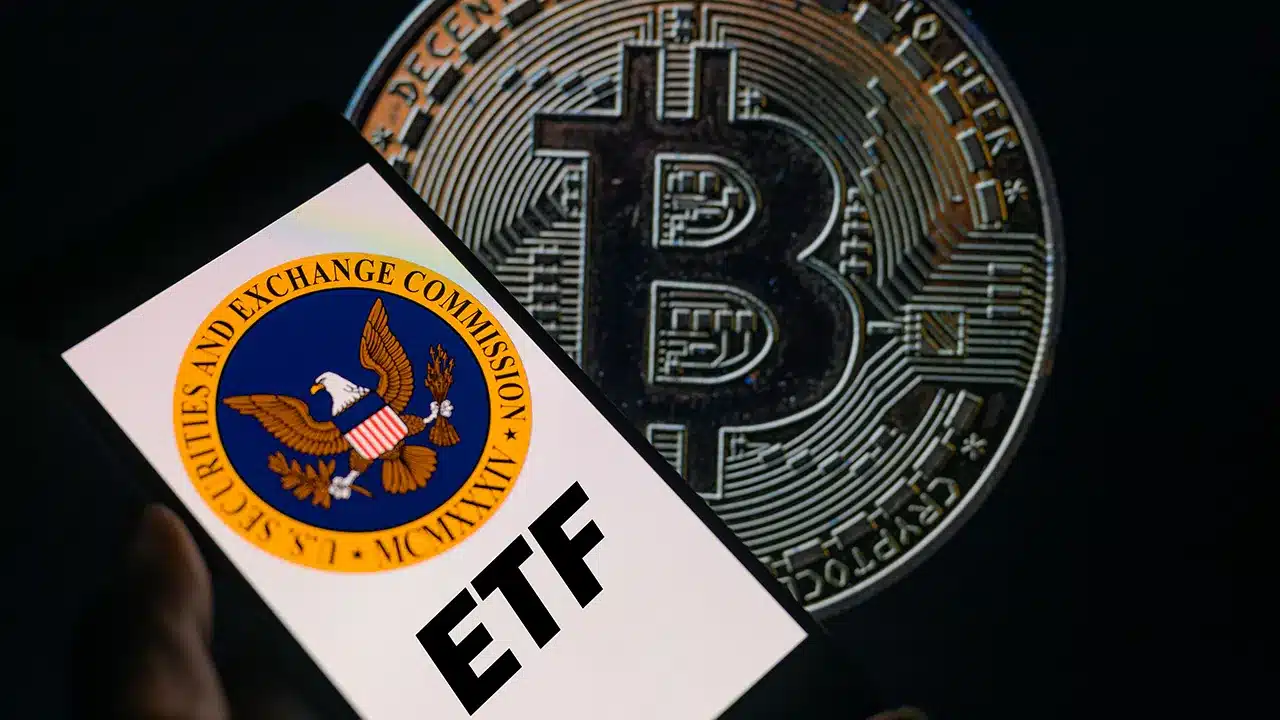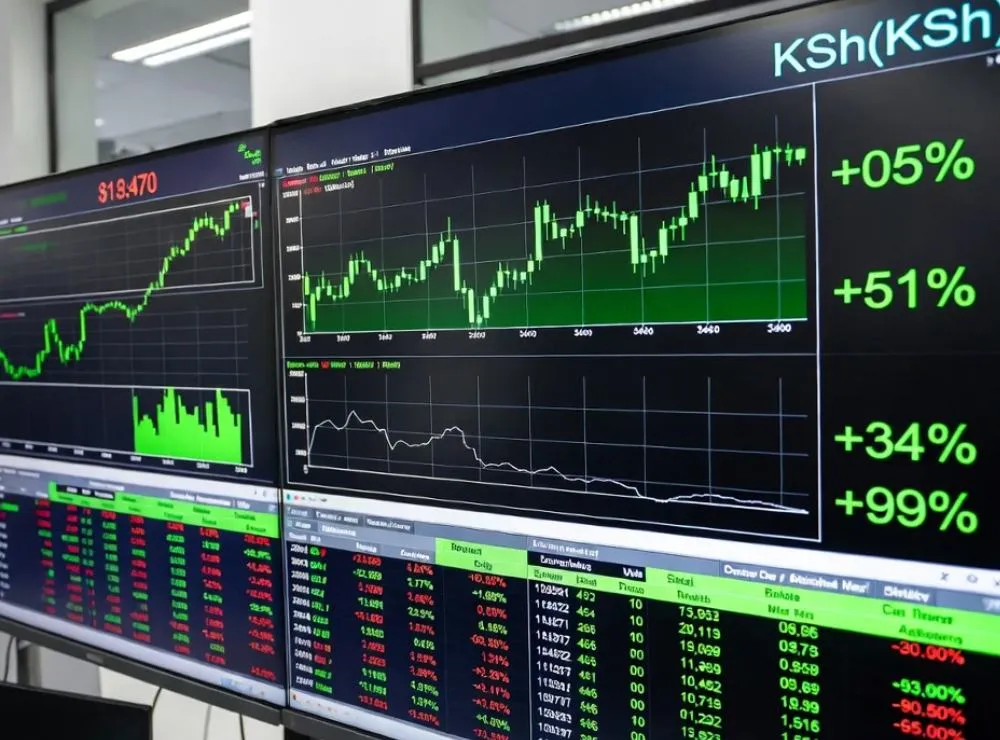The financial world is experiencing a seismic shift as the U.S. Securities and Exchange Commission (SEC) granted approval for eleven Bitcoin Exchange-Traded Funds (ETFs) on October 18, 2024. These ETFs, which will trade on both the New York Stock Exchange (NYSE) and the Chicago Board Options Exchange (CBOE), represent a historic milestone in the integration of cryptocurrencies into traditional financial markets.
The approval includes a range of prominent ETF providers, such as Fidelity, ARK21Shares, Invesco, Franklin, VanEck, WisdomTree, Grayscale, Bitwise, BlackRock, and Valkyrie, all operating on the NYSE. The CBOE’s involvement, with a filing submitted in August 2024, aims to classify Bitcoin ETF options alongside traditional commodity-based ETFs, though the Grayscale Bitcoin Mini Trust is an exception to this classification.
Mainstream Adoption and Market Impact
The launch of Bitcoin ETFs is a significant leap forward for the mainstream acceptance of cryptocurrencies, particularly Bitcoin, which has often been viewed as a volatile and speculative asset. These ETFs are expected to increase liquidity in the market and attract institutional investors who have been cautious about directly investing in digital assets. By offering a regulated, tradable financial product, the ETFs lower the barrier to entry for both retail and institutional investors.
However, while the approval has been hailed as a major step towards greater legitimacy for the cryptocurrency market, industry analysts are cautious about the long-term impact. Many are comparing this development to previous crypto-related financial products, which generated significant initial excitement but did not fundamentally change the volatility or risk associated with the crypto market.
What sets these ETFs apart from previous attempts is the backing of major financial institutions. Firms like BlackRock and Fidelity bring a level of credibility and trust to the product that may appeal to conservative investors who previously steered clear of Bitcoin due to its unpredictable price movements. Additionally, these ETFs introduce the concept of central guarantors, which adds a layer of security to the trading process.
Potential for Short Squeezes and Volatility Management
One of the most intriguing aspects of the Bitcoin ETF approval is the potential for short squeezes. A short squeeze occurs when short traders, who have bet against an asset, are forced to buy it back at a higher price to cover their positions. The introduction of these ETFs could make Bitcoin more vulnerable to such events, especially given the cryptocurrency’s historically high levels of speculation and volatility.
At the same time, the presence of institutional players and regulated ETFs may help temper Bitcoin’s price swings over the long term. By offering new mechanisms for managing exposure to Bitcoin, such as the ability to hedge positions or diversify portfolios, these ETFs could introduce a new era of stability for the digital asset market. The approval of these ETFs also brings optimism for a smoother, less volatile market, potentially transforming Bitcoin into a more appealing asset for conservative investors who are traditionally averse to high-risk investments.
Strong Market Reception: BlackRock Leads the Charge
Since the SEC’s approval, the market has responded with overwhelming enthusiasm. BlackRock’s spot Bitcoin ETF has led the charge, surpassing $1 billion in assets under management (AUM) in less than a week. The broader U.S. spot Bitcoin ETF market saw inflows of more than $1.85 billion during the same period. To put this into perspective, gold ETFs took nearly five years to achieve similar inflows, highlighting the rapid pace of adoption for Bitcoin as an investment vehicle.
This early success underscores the growing demand for cryptocurrency-based financial products, especially among institutional investors. BlackRock’s involvement, in particular, has been seen as a bellwether for future developments in the crypto market. With the firm’s reputation for managing trillions of dollars in assets globally, its foray into the Bitcoin ETF space lends legitimacy to the broader adoption of digital assets.
Expanding the Horizons: Ethereum ETFs Make Waves
Bitcoin may be leading the charge, but Ethereum is not far behind. Ethereum-based ETFs are also gaining traction, with Fidelity’s spot Ethereum ETF (FETH) seeing net inflows of $48.4 million in a single day. This signals that investors are beginning to diversify their cryptocurrency holdings beyond Bitcoin, demonstrating growing confidence in Ethereum’s long-term value proposition.
The introduction of Ethereum ETFs reflects a broader trend within the digital asset space, where investors are looking to expand their portfolios to include other top-performing cryptocurrencies. While Bitcoin remains the dominant player, Ethereum’s use cases, particularly in decentralized finance (DeFi) and smart contracts, offer a compelling investment opportunity for those looking to gain exposure to blockchain technology beyond simple store-of-value assets.
Institutional Moves in Asia: DBS Bank’s Blockchain Push
While the U.S. market is abuzz with Bitcoin ETFs, across the globe, Singapore’s DBS Bank is making headlines with its innovative approach to blockchain technology. As the largest financial institution in Singapore, DBS Bank has launched a suite of blockchain-based products under its “Token Services” platform. These services are aimed at institutional clients and focus on enhancing liquidity management and streamlining operational efficiencies.
DBS Bank is leveraging an Ethereum-compatible permissioned blockchain to integrate tokenization and smart contracts into its core banking systems. This allows the bank to capitalize on blockchain’s benefits while remaining compliant with regulatory frameworks. By embracing blockchain technology, DBS Bank is positioning itself at the forefront of digital finance innovation in Asia, signaling a broader global shift toward blockchain adoption in mainstream banking.
AI Meme Coins and the Rise of Speculative Assets
In the ever-evolving cryptocurrency landscape, a new trend has captured the attention of investors—AI meme coins. These speculative digital assets, which combine artificial intelligence (AI) elements with the whimsical nature of meme coins, are attracting significant interest. While some see this as an exciting new frontier in cryptocurrency, others remain skeptical about the sustainability and long-term value of many mid-tier projects.
Institutional investors have so far largely stayed away from AI meme coins, viewing them as high-risk, speculative ventures. However, the growing interest in AI technology could eventually drive institutional involvement in select projects. Despite this, the number of lawsuits tied to meme coins is on the rise, with investors seeking legal recourse after experiencing significant financial losses.
The Legal Landscape: Meme Coins and the Howey Test
From a legal perspective, the increasing scrutiny surrounding meme coins raises questions about their regulatory status. Many of these assets could be subject to the Howey test, a legal framework used to determine whether a financial instrument qualifies as a security. If meme coins are found to meet the criteria of the Howey test, both the issuers and promoters, including celebrities who have publicly endorsed these tokens, could face regulatory actions.
Several high-profile meme coin promotions involving celebrities have already drawn the attention of regulators. Legal experts suggest that the involvement of well-known figures could make it easier to prove that a token meets the Howey test’s “efforts of others” prong, which focuses on whether investors expect profits based on the actions of third parties.
As the legal battles surrounding meme coins intensify, the outcomes of these cases could set important precedents for the cryptocurrency industry. Similar court actions involving NFTs are being closely monitored, as the legal interpretations of these cases could offer insights into how meme coin-related litigation might unfold in the future.
Conclusion: A New Era for Cryptocurrencies
The approval of eleven Bitcoin ETFs marks a new chapter in the evolution of the cryptocurrency market, as digital assets continue to gain legitimacy in the eyes of institutional investors. The rapid inflows into these funds signal a growing appetite for crypto-based financial products, and the involvement of established financial institutions like BlackRock and Fidelity further cements cryptocurrencies’ place in global finance.
At the same time, emerging trends such as Ethereum ETFs, AI meme coins, and blockchain innovations from institutions like DBS Bank indicate that the cryptocurrency market is diversifying beyond Bitcoin. However, as the market evolves, so too will the legal and regulatory challenges facing the industry. As cryptocurrencies continue their march toward mainstream adoption, all eyes will be on how these developments shape the future of finance.
Ready to take your career to the next level? Join our dynamic courses: ACCA, HESI A2, and ATI TEAS 7! 🌟 Dive into a world of opportunities and empower yourself for success. Explore more at Serrari Ed and start your exciting journey today! ✨
Photo source: Google
By: Montel Kamau
Serrari Financial Analyst
22nd October, 2024
Article, Financial and News Disclaimer
The Value of a Financial Advisor
While this article offers valuable insights, it is essential to recognize that personal finance can be highly complex and unique to each individual. A financial advisor provides professional expertise and personalized guidance to help you make well-informed decisions tailored to your specific circumstances and goals.
Beyond offering knowledge, a financial advisor serves as a trusted partner to help you stay disciplined, avoid common pitfalls, and remain focused on your long-term objectives. Their perspective and experience can complement your own efforts, enhancing your financial well-being and ensuring a more confident approach to managing your finances.
Disclaimer: This article is for informational purposes only and does not constitute financial advice. Readers are encouraged to consult a licensed financial advisor to obtain guidance specific to their financial situation.
Article and News Disclaimer
The information provided on www.serrarigroup.com is for general informational purposes only. While we strive to keep the information up to date and accurate, we make no representations or warranties of any kind, express or implied, about the completeness, accuracy, reliability, suitability, or availability with respect to the website or the information, products, services, or related graphics contained on the website for any purpose. Any reliance you place on such information is therefore strictly at your own risk.
www.serrarigroup.com is not responsible for any errors or omissions, or for the results obtained from the use of this information. All information on the website is provided on an as-is basis, with no guarantee of completeness, accuracy, timeliness, or of the results obtained from the use of this information, and without warranty of any kind, express or implied, including but not limited to warranties of performance, merchantability, and fitness for a particular purpose.
In no event will www.serrarigroup.com be liable to you or anyone else for any decision made or action taken in reliance on the information provided on the website or for any consequential, special, or similar damages, even if advised of the possibility of such damages.
The articles, news, and information presented on www.serrarigroup.com reflect the opinions of the respective authors and contributors and do not necessarily represent the views of the website or its management. Any views or opinions expressed are solely those of the individual authors and do not represent the website's views or opinions as a whole.
The content on www.serrarigroup.com may include links to external websites, which are provided for convenience and informational purposes only. We have no control over the nature, content, and availability of those sites. The inclusion of any links does not necessarily imply a recommendation or endorsement of the views expressed within them.
Every effort is made to keep the website up and running smoothly. However, www.serrarigroup.com takes no responsibility for, and will not be liable for, the website being temporarily unavailable due to technical issues beyond our control.
Please note that laws, regulations, and information can change rapidly, and we advise you to conduct further research and seek professional advice when necessary.
By using www.serrarigroup.com, you agree to this disclaimer and its terms. If you do not agree with this disclaimer, please do not use the website.
www.serrarigroup.com, reserves the right to update, modify, or remove any part of this disclaimer without prior notice. It is your responsibility to review this disclaimer periodically for changes.
Serrari Group 2025
















